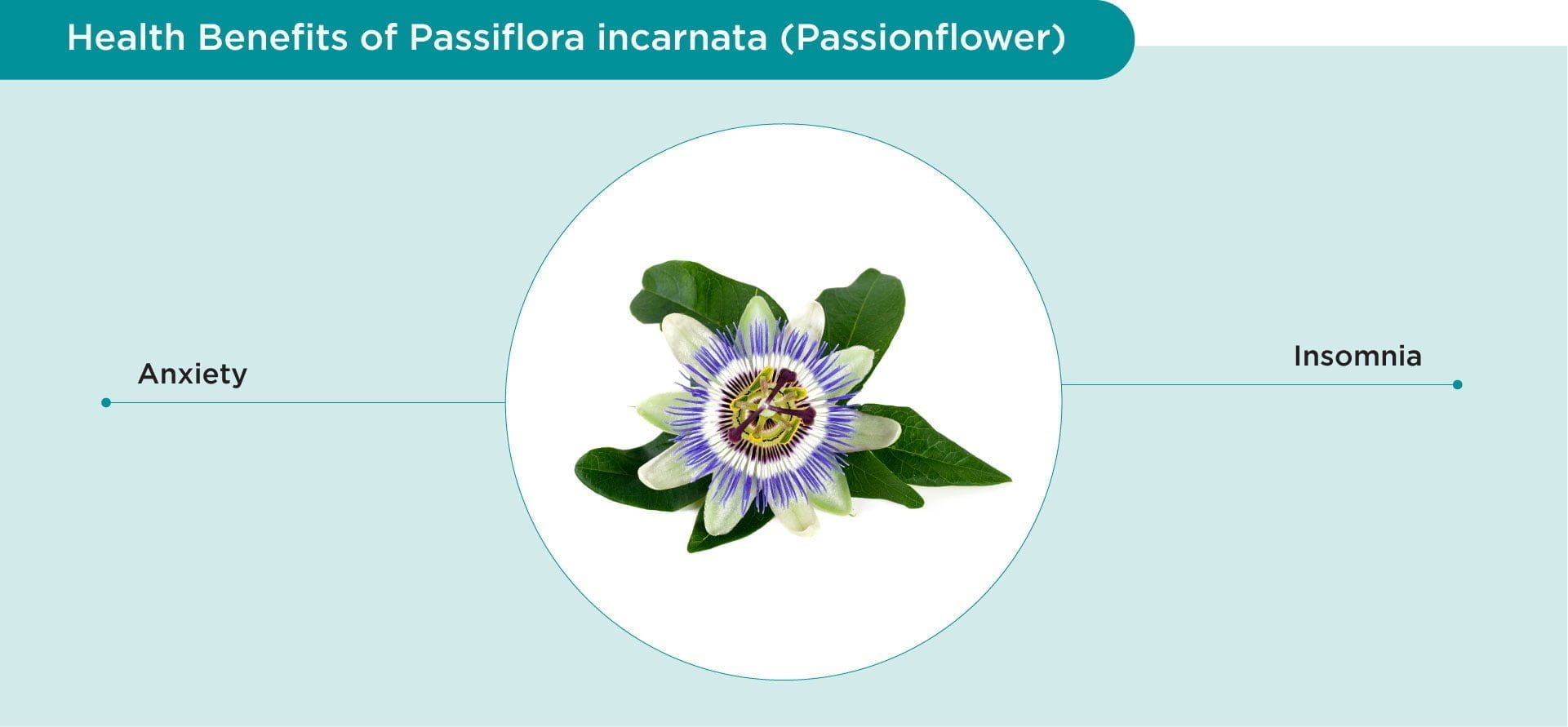Passiflora incarnata (Passionflower)

Passiflora incarnata (Passionflower)
Passiflora incarnata, also known as passionflower or maypop, belongs to the Passifloraceae family. Passiflora comes from the Latin word “Passio” that was first discovered by Spanish explorers and was described as a symbol for “Passion of Christ” 1. Passiflora incarnata is native to the southeastern United States and Central and South America 2. Passiflora incarnata has long been used in traditional herbal medicine as a sedative by native Americans. In Europe, people have used Passiflora incarnata for the treatment of insomnia and anxiety.
Nutritional Facts
The main bioactive constituents of Passiflora incarnata are flavonoids, indole alkaloids, phenols, glycosyl, and cyanogenic glycosides 1,3. Flavonoids are the major phytoconstituents and most likely is the active ingredient of Passiflora incarnata. Flavonoids found in Passiflora incarnata are vitexin, isovitexin, orientin, isoorientin, apigenin, kaempferol, and quercetin 1,3.
Published Health Benefits
1. Anxiety
Mental stress can cause conditions such as anxiety, agitation, and nervousness. Passiflora incarnata is used for anxiety, including anxiety before surgery as it calms the mind without inducing sedation 3,4,5.
2. Insomnia
Passiflora incarnata extract lowers brain activity, which may improve the quality of sleep and beneficial to those with mild sleep irregularities 4.
References:
1. Patel, Sita & Sheikuduman, Mohamed Saleem & Ravi, V & Shrestha, Bhupendra & Verma, Nitin & Karunakaran, Gauthaman. (2009). Passiflora incarnata Linn: A phytopharmacological review. International Journal of Green Pharmacy. 3. 10.4103/0973-8258.59731
2. National Center for Complementary and Integrative Health. Passionflower. Updated September 24, 2017. https://www.nccih.nih.gov/health/passionflower
3. Ngan, A., & Conduit, R. (2011). A double-blind, placebo-controlled investigation of the effects of Passiflora incarnata (passionflower) herbal tea on subjective sleep quality. Phytotherapy research: PTR, 25(8), 1153–1159. https://doi.org/10.1002/ptr.3400
4. Movafegh, A., Alizadeh, R., Hajimohamadi, F., Esfehani, F., & Nejatfar, M. (2008). Preoperative oral Passiflora incarnata reduces anxiety in ambulatory surgery patients: a double-blind, placebo-controlled study. Anesthesia and analgesia, 106(6), 1728–1732. https://doi.org/10.1213/ane.0b013e318172c3f9








